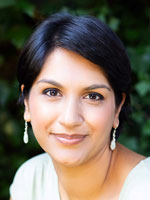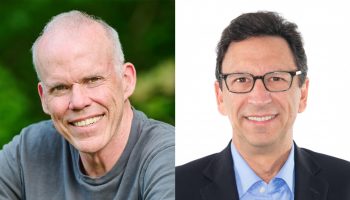In 2019, Angela Saini published her book, Superior: The Return of Race Science. But she’d like to clarify: Though the word resides in its title, Superior is not a science book, because there is no science to race.

Superior, rather, serves as a historical guide, tracing the past, present and future of how notions of inferiority and superiority “live on in people’s imaginations.”
“When you start to understand the history and the political elements of race and how this idea was constructed over many centuries, then you can begin to dismantle it in your head,” Saini said. “Slowly, as we start to do that as individuals, we can do that as societies and as institutions.”
Saini, science journalist, broadcaster and author, will deliver her lecture, “The Return of Race Science” at 10:45 a.m. EDT on Thursday, Aug. 13, on the CHQ Assembly Video Platform, as part of the Week Seven Chautauqua Lecture Series theme, “The Science of Us.”
The classifications were so arbitrary that they had no biological meaning anymore,” Saini said. “That’s what finally broke the glass.”
In her presentation, Saini said she plans to explore propositions suggesting race has any kind of “biological validity, considering it’s something scientists tell us again and again is a social construct.”
“I want to dismantle the ways in which modern Western science constructed the idea of race and built upon that,” Saini said. “Then, I want to explore the way that the legacy lives on in medicine, genetics, DNA ancestry testing and also in the alt-right and far-right; how these ideas get used and abused in ethnic nationalism and white supremacy.”
Most find it hard to believe, Saini said, but before World War II, being racist was not seen as an unfavorable attribute the way it is currently. In fact, the concept of subspecies among the human race was “widely held” by many Western scientists across Europe and the United States.
“That view wasn’t seen as marginal at all — it was seen as something totally acceptable,” she said. “Somehow, even the concept of eugenics was tolerable; favorable, even. (Eugenics) was taught in universities and talked about by public figures on both the left and right.”
Eugenics is the study of arranging reproduction within a human population to increase the occurrence of heritable characteristics considered to be most desirable. Because Nazis in Germany tried to biologize identity, Saini said eugenics was also the philosophy “partially behind the Holocaust.”
The consequences of the Holocaust were so harrowing, mainstream science turned its back on race science.
“The classifications were so arbitrary that they had no biological meaning anymore,” Saini said. “That’s what finally broke the glass.”
Even though the global population appeared to come together in the wake of the genocide, Saini said for some scientists, it was already too late.
“They couldn’t imagine a world where race didn’t matter,” she said.
The scientists “at fault” weren’t solely responsible. According to Saini, the superiority complex lives on in citizens of societies that have experienced colonialism or slavery, or have been the perpertrators of either of those things. Two prime examples: the United States and United Kingdom.
For example, during the Brexit “Vote Leave” campaign, Saini said the debate around the issue occasionally shifted into a racialized question about whether Brits wanted “more immigration or not.”
“Some people discussed their wish to return to some kind of British empire again, failing to understand that this is not seen as a good thing by historians,” she said. “Those ideas about what makes Britain special or what makes Britain great were playing out — underlying some of that was this idea of racial superiority.”
The most obvious difference between the U.S. and London these days is that race and ethnicity are “always a point of discussion in the States,” she said.
“If there is one thing I think I have found about the States that is different than London these days, it’s that my race and ethnicity is constantly being observed and commented on, and I think that speaks to how racialized the United States has become,” she said.
Racism has been a constant throughout history, Saini said, and clearly, it’s something that will take years to fully remove.
“I don’t think we will see the end of it in my lifetime,” Saini said.
What it requires is a “huge amount of reflection and introspection,” Saini said. People are exposed to norms and social constructs early on in life, meaning that looking outside of them, ultimately changing them, comes with a number of challenges.
“I was raised with these norms and ideas just like everybody else in the society I live in,” Saini said. “I wasn’t even taught about Britain’s involvement in the slave trade. But, because of things like the Black Lives Matter movement, people are starting to educate themselves. In that process, the world will change.”
This program is made possible by the Week Seven “Program Sponsor” Allegheny Health Network and the G. Thomas and Kathleen Harrick Lectureship Endowment.




